Ever felt winded after taking the stairs? Dumbbell step-ups are the cure—simple, effective, and guaranteed to torch legs and glutes. The short answer: yes, dumbbell step-ups build strength, balance, and power. Grab best-selling dumbbells (5–150 lbs) like Troy or York, and keep reading to master this underrated leg-day weapon.
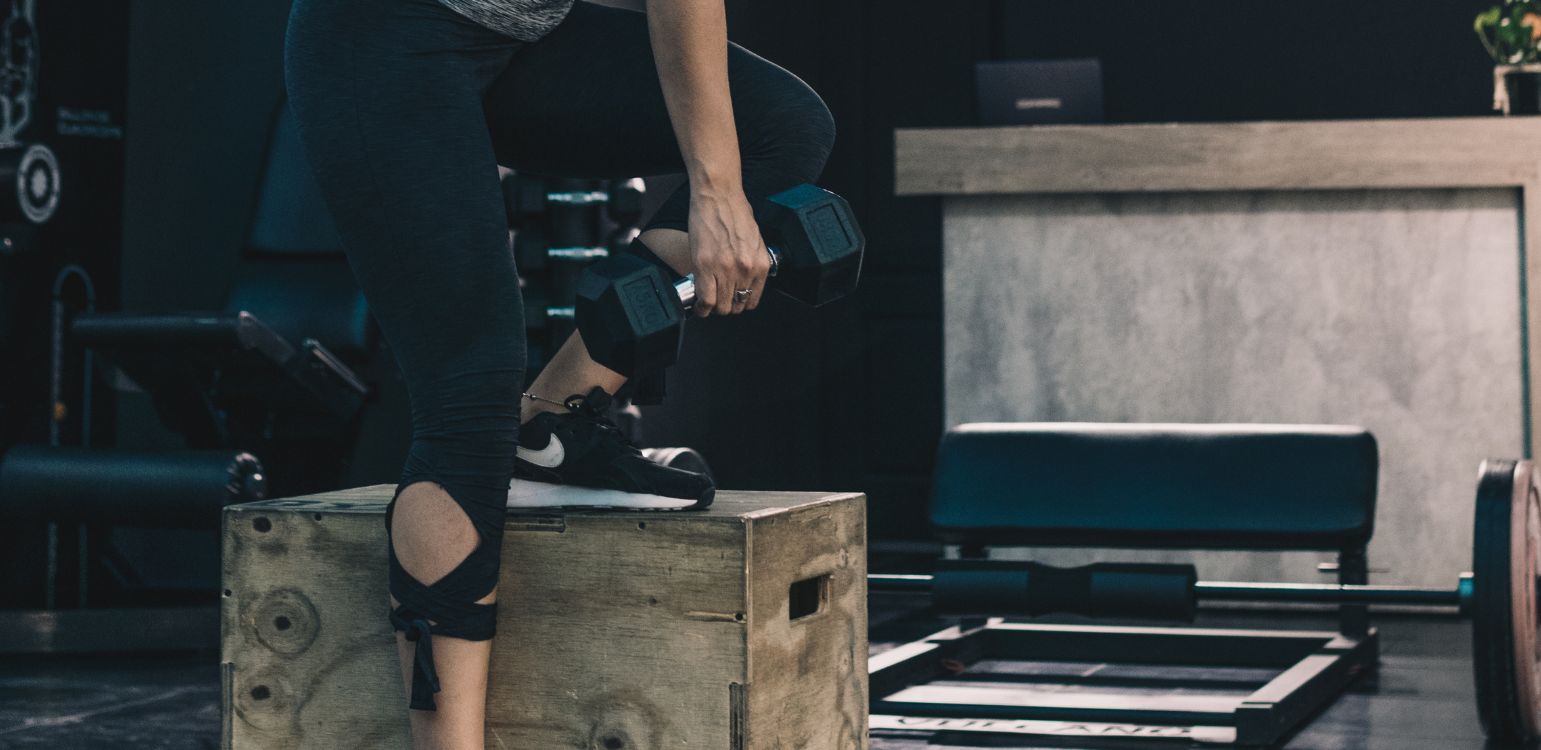
Dumbbell Step-Ups: Strength, Balance & Glute Power
Why Train Dumbbell Step-Ups?
Benefits of dumbbell step ups vs bodyweight step ups
Bodyweight step ups are a solid starting point, but adding dumbbells takes the movement to a whole new level. The extra weight challenges balance, forces more muscle recruitment, and helps you build strength faster. It’s the same move, but with far greater payoff.
Why step ups for glutes improve balance & athletic power
Think about sprinting up a hill or climbing stairs two at a time — that’s the athletic power step ups build. By loading them with dumbbells, you’re teaching your glutes and legs to push harder while your core fights to keep you balanced. It’s strength training and balance work in one.
Weighted step ups vs other leg day staples
Squats and lunges will always be leg day classics, but weighted step ups hit the same muscles without putting as much stress on the lower back. They also mimic real-world movement patterns better than most exercises. Carrying groceries, hiking, or sports performance — step ups prepare you for all of it.
Are step ups good for beginners? Quick answer explained
Yes. Beginners can start with a low step and no weights, focusing on clean form. Once balance and confidence improve, light dumbbells can be added to increase resistance. With practice, dumbbell step ups can progress from simple strength work to a powerful conditioning tool.
Anatomy — What Muscles Do Step Ups Work?
Primary movers — quads, hamstrings & glutes in db step ups
Every step up is powered by your quads, hamstrings, and glutes. These three big movers do the heavy lifting, literally driving you up onto the platform.
Step ups for glutes — why higher step = more glute activation
A higher step makes your glutes fire harder. The extra range of motion forces the hips to extend more, which means more glute activation. Just make sure the platform isn’t so high that you lose form.
Secondary support — calves, hip flexors & core stabilizers
Step ups are sneaky because while they look simple, many muscles chip in. Calves help stabilize the ankle, hip flexors lift your leg, and your core prevents tipping or twisting.
Step up muscles worked: quick breakdown for all levels
For beginners, step ups feel mostly like a quad exercise. As you raise the step and add weight, you’ll notice more glute and hamstring activation, with core and stabilizers always along for the ride.
Core Dumbbell Step-Up Variations
Standard dumbbell step up (classic version)
Hold dumbbells at your sides, step onto a box or bench, and rise tall. It’s straightforward but brutally effective when performed with control.
Single leg step ups & alternating db step ups
Single leg versions increase balance demands, while alternating db step ups keep the workout flowing and heart rate climbing. Both are great for symmetry and coordination.
Glute step ups & step up with knee raise
To emphasize glutes, use a higher box. Adding a knee drive at the top brings the hip flexors and core into play, turning it into a dynamic, athletic drill.
Step box workout & bench step ups
Step ups can be done with either a sturdy bench or a workout box. Benches give more stability, while boxes allow for creative height adjustments and workout circuits.
Step up with dumbbell hold variations (side, front, racked)
How you hold the dumbbells changes the feel. Side holds are classic, front holds tax your core, and racked positions challenge balance while mimicking athletic lifts.
Advanced & Specialty Step-Up Variations
Explosive / plyometric step ups for athletes
Add a jump at the top to build explosive power. This variation mimics the drive needed for sprinting or jumping sports.
Step up exercise box drills with dumbbells
Drills like lateral step ups or diagonal climbs keep things fresh and challenge stabilizers from different angles.
Step up circuits — pairing with lunges & squats
Pairing dumbbell step ups with lunges and squats creates a killer lower-body circuit. You’ll hit strength, balance, and conditioning in one go.
Step up alternatives — Bulgarian split squats, lunges, leg press
If step ups aren’t an option, Bulgarian split squats and lunges offer a similar unilateral challenge. The leg press provides a machine-based alternative, though it lacks the balance training.
Alternatives to step ups for glute & leg training
Hip thrusts and Romanian deadlifts are great swaps. They don’t mimic the climbing motion, but they target glutes and hamstrings effectively.
How to Do Dumbbell Step Ups Correctly
Step-by-step guide: how to do step ups for glutes
-
Grab a pair of dumbbells and stand tall in front of a bench or box.
-
Place one foot on the platform and press through your heel.
-
Bring the other leg up to stand tall.
-
Step down with control and repeat.
Choosing step up exercise box or bench step ups
A sturdy bench or box at knee height is ideal. Start lower if you’re new and work your way up as strength and stability improve.
Proper dumbbell grip, posture & balance cues
Keep your chest tall, core braced, and dumbbells steady at your sides. Think control, not speed.
Common mistakes to avoid — pushing off the back leg, poor knee alignment
Don’t cheat by bouncing off the back leg. And make sure your lead knee stays in line with your toes to avoid unnecessary strain.
Sample Dumbbell Step-Up Workouts
Beginner workout — light db step ups + squats
3 sets of 8–10 reps per leg, followed by bodyweight squats to lock in form.
Intermediate glute step ups + step box workout
Increase box height and add alternating db step ups. Pair with lunges for a complete leg session.
Advanced conditioning — explosive step ups & weighted step ups
Mix heavy weighted step ups with plyometric jumps for power and endurance.
Full lower body workout with dumbbell step ups
Combine db step ups, squats, lunges, and Romanian deadlifts for a complete lower-body burn.
Dumbbells & Equipment by Brand
Dumbbell options — Troy urethane dumbbells, Troy rubber dumbbells, Troy pro style dumbbells, York cast iron, VTX, TAG Fitness, Intek, TKO, BodyKore, neoprene, vinyl, rubber hex, hex
From classic cast iron to sleek urethane, each dumbbell type has its strengths. Choose based on comfort, durability, and training style.
Why grip comfort & weight increments matter for step up exercise benefits
Step ups require stability. A comfortable grip and smaller weight jumps make progression smoother and safer.
Best-selling dumbbells (5–150 lbs) recommended for step up with dumbbells
Our best sellers — Troy urethane, Troy rubber, Troy pro style, and York cast iron — cover everything from light 5 lb dumbbells to heavy 150 lb pairs.
Price, Value & Promotions
Step ups with dumbbells vs machines — cost comparison
Why invest in bulky machines when a set of dumbbells offers more versatility? Dumbbell step ups give you strength and conditioning in one move.
Bulk discount pricing & custom quotes for dumbbell sets
We provide custom discounts for bulk orders, perfect for gyms or serious home setups.
Weekly 5% promos on best-selling dumbbells
Every week we rotate new 5% off codes so you can save on top-selling dumbbells.
Final Takeaway — Why Dumbbell Step Ups Are a Must for Leg Day
Step ups might look simple, but they’re one of the most functional, effective moves you can add to leg day. They build strength, balance, and glute power all at once.
From beginner bodyweight versions to explosive weighted step ups, the variations are endless. And when you’re ready to upgrade, Troy, York, VTX, and Pro Style dumbbells (5–150 lbs) are always in stock with custom discounts.


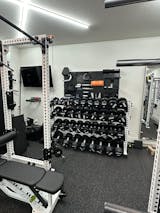


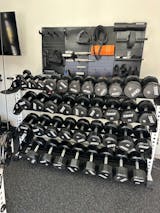
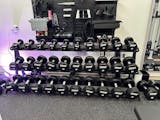
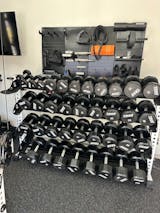


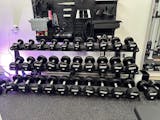

Leave a comment